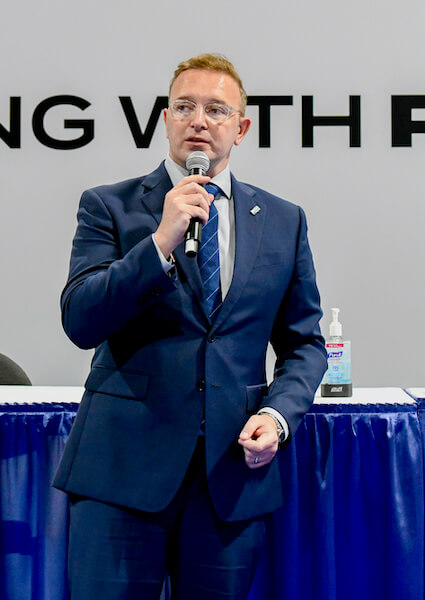Guest column: The value game

Dr. Stathis Kefallonitis
Our industry has proven to be resilient over and over again after pandemics (COVID-19, SARS, foot-and-mouth) armed conflicts and turmoil around the world.
The problem this time is that customers, in this case passengers, know that they have choice and exercise it with their buying power.
An increasing number of voices call for passengers not to complain, as nothing changes. Instead, they are asked to take their business elsewhere. In other words, stop being loyal. You read that right: Stop being loyal. Loyalty has its advantages but also its costs if one sticks to one airline.
In an industry where loyalty is everything, yet it is not rewarded like before, how can an increasing number of dissatisfied customers come back?
Airlines and airports often say that passengers are used to having things their way. Often, they go as far as saying that passenger complaining behavior is a habit. This usually gets rewarded by frequent flyer miles, flight coupons and other perks.
Just as passenger habits are changing, the airline industry has to change by adapting to the new now. Pioneering a new value proposition airlines can make air travel more attractive.
Eliminating stressors in the journey is perceived as a positive move forward. A rethinking of check-in and security screening processes can add value. Remote and electronic check-in, as well as further use of technology and biometrics, provide useful solutions.
“Augmented hospitality” is another idea that can enhance the value by making air travel an essential part of the entire journey. The concept has been described as refined vision of hospitality that focuses on tailor-made services offered to a wide breadth of consumers.
Passengers will not spend money if the excitement is not there. One of our new drivers for changes should be money well-spent! Partnering with premium brands and offering bundles that can enhance a passenger’s journey could increase sales and revenue. Offering more options such as early check in (48 hours before) or remote check in (train stations, etc.), fast-track security, chef curated meals and snacks can help.
Technology should be enabling me and other passengers to improve the experience, using options available. Inflight entertainment or airline app should allow me to do other things, too. Finish a Netflix movie, watch an Amazon series episode, or go shopping. Then some can argue that watching movies does not generate any revenue.
Cohesiveness is key in keeping passengers excited and happy. Options offered can be innovative disruptors that make passengers think differently.
Continuity is another important factor that airlines need to invest in. Utilizing existing passenger information (preferences, FFP etc.) and new technology (salesforce, etc.) can establish consistency and ensure a smooth journey by addressing any travel irregularities and disturbances.
Empowering and engaging airline employees is key. Encouraging and recognizing excellence can have a big impact on everything that the passenger sees. Generating a work environment that allows them to grow and be happy increases the likelihood of productivity and employee happiness. We know that happy employees provide a better service and stand a better chance of creating happy passengers.
As travel becomes more complex, airlines and service providers are asked to step up and do more. Innovating is the solution to a successful product and its delivery in an ever-changing world.

